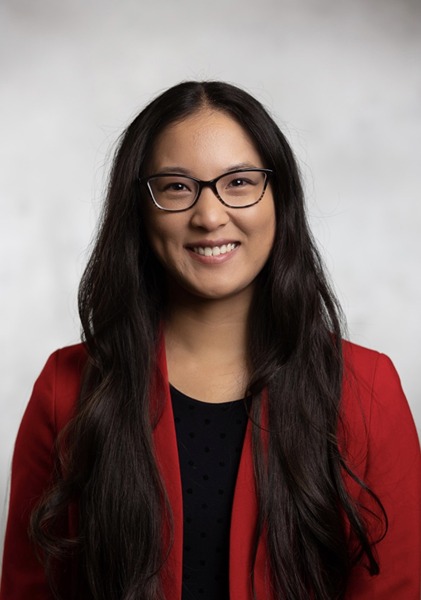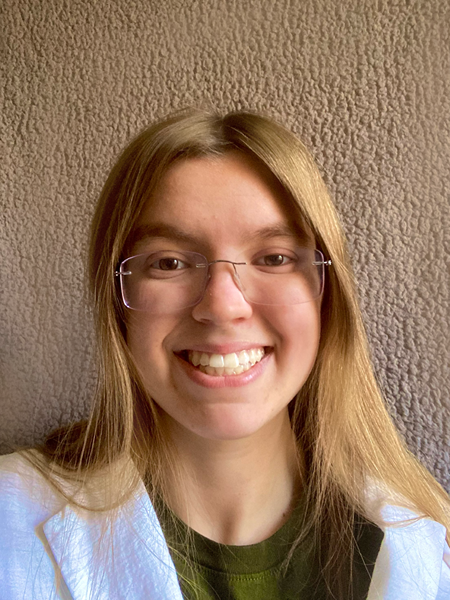West Lafayette, Indiana, USA
September 27, 2024
nocking on watermelons in the produce aisle, your mind probably wanders to hot summer afternoons by pools with fresh-cut red wedges while you listen for a dense thunk. A few Purdue alumni and students have recently taken an even greater interest in the melons that never even make it to market.

Only the highest grade of watermelons, pumpkins, cantaloupes and other fruits ever get shipped to your grocery stores. Others might be an unfavorable size, shape or color that can be juiced, pickled or even made into jerky—though such alternative processes only make a dent in the 40 million pounds of watermelon waste left on the fields every season in Knox County, Indiana, one of the country’s largest producing regions of melons.
Not only is this waste unprofitable for farmers, but it also decomposes and releases carbon dioxide—a potent greenhouse gas—into the atmosphere. Any disease present in the field might survive in the debris over winter and even leach into the water after the rain. Some melon-growing regions require farmers to remove the waste, which can be an expensive endeavor.

Husband-and-wife Brian and Katie Southern, both Purdue alumni, spoke to growers in Knox County and saw opportunities for the unusable, polluting produce to lead more eco-friendly lives—while also paying farmers to take the waste off their fields.
“With my food science background, I understood what chemical properties exist in watermelon rinds and other melons,” Katie said. “I thought, could we use those chemical properties to make a resin polymer that would suit the demands of different plastics?”
Plastic use and disposal is a global environmental issue. Although it’s useful and convenient for modern life and even crucial for sterile medical procedures, plastic can take centuries to decompose, contaminating the food supply and becoming a health hazard.

With Brian’s electrical and chemical engineering background, and over three decades of experience in processing materials in the food industry, he and Katie co-founded AgroRenew to tackle both problems with the production of bioplastics. They’re able to generate resin plastic pellets from the watermelon rinds and other specialized plant and biomaterials that can be heated and molded into various plastics like grocery bags and straws. Although these plastics look and perform much like their petroleum-based counterparts, they decompose within 180 to 250 days.
“Right now, most biodegradable plastics are what we could classify as a niche market due to their low volumes,” said Brian. “But, 12 states have already banned the use of single-use plastics, and the world quickly needs to meet the demands of hundreds of millions of tons of it.”
Purdue’s Agriculture and Biological Engineering Department has provided essential support to the Southerns in terms of testing, resources and advice as AgroRenew continues to grow and optimize its process. Brian said they’re looking to use breeding and genetic engineering to produce cover crop varieties that would best protect farmers’ soil while also having the chemical properties useful for bioplastic processing.
AgroRenew takes in millions of pounds of spoiling produce from the Indiana/Illinois region, as well as Florida, Georgia, Delaware, Texas and California. Thanks to Brian’s expertise, he is able to take the recipes he and Katie generate for different plastic products and scale them up to meet commercial demand at their processing plant that broke ground in June 2024.
 AgroRenew team and partners break ground on new facility. (Photo provided by AgroRenew)
AgroRenew team and partners break ground on new facility. (Photo provided by AgroRenew)
This new plant will be able to produce 300,000 tons of bioplastic every year, and Brian said the team is most excited to “create a new revenue stream of up to $150 million for the farming community.”
The Southerns are also giving back to their alma mater. AgroRenew has committed to creating 300 positions in science, skilled labor, engineering, accounting, human resources and more at their new plant in Vincennes, Indiana.
In a rural region without recent large economic development, Brian said he is excited to “offer opportunities for kids who grew up in Knox County, went off to Purdue and other colleges, graduated and ended up somewhere else because they didn't have a job to come back to.”

AgroRenew is simultaneously investing in the education of current Purdue students as well. Amanda Wolf was originally inspired by her eighth grade science teacher to follow the potential of her strong problem-solving skills through agriculture. Now a junior majoring in biological engineering and minoring in biotechnology, Wolf put that passion and talent to use on the AgroRenew team this summer. She heard about the position from her department and was excited to see an internship in Indiana that focused on sustainability.
Wolf most enjoyed getting to apply her knowledge from class to real-world industry situations. Not only did she “talk to a bunch of companies from around the U.S. and the world, figuring out if their machines could fit on the process line of steps AgroRenew needs,” but she also helped design machines that no other company had yet. “If there’s not a machine that can do what we are needing to do, we’re going to invent it ourselves,” she said.
Wolf is also grateful for the “boots-on-the-ground” experience of working for the start-up company. She obtained an inside look at what careers in her field are and built strong connections within the industry. “It’s been so exciting to be a part of this sustainability initiative at a pivotal point in the world,” she said.
The Southerns were equally excited to have Wolf on board. They know she will take the skills gained from this internship through the rest of her academic career and wherever she goes next—a core piece of how AgroRenew is giving back. “Watermelons give us a tool to fight climate change and be sustainable, but they’re just one part of that battle,” Brian said. “A lot of what we are doing nowadays is educating the community about how bioplastics and this technology that nobody has ever seen before works, and we’re happy to do that.”